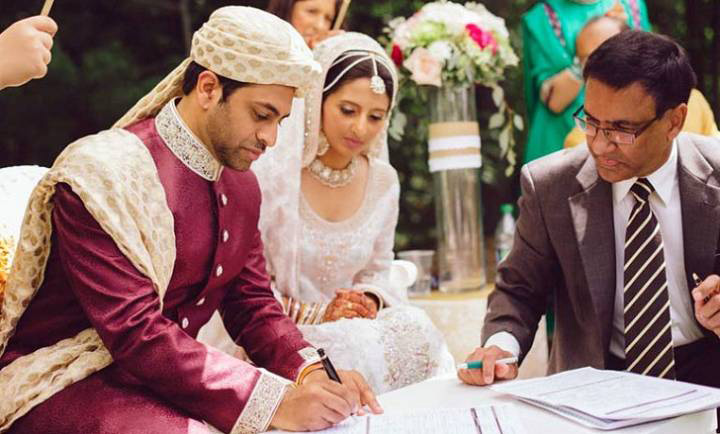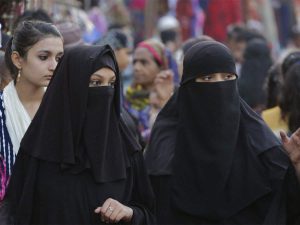Table of Contents
Introduction
Dower is referred to as ‘Haq-Mahr’ or ‘Mahr’ in Mohammedan law. Apart from offer and acceptance, the dower is one of the most important elements in a Muslim marriage. It is one of the most important aspects of Muslim marriage. According to Islamic beliefs, a Muslim wife has the right to dower.
Classification of dower
The dower may be classified into:
- Specified dower (Mahr-i-Musamma)
- Customary / Proper Dower (Mahr-i-Misl)
Specified Dower
If the amount of dower is stated in the marriage contract, it is called the specified dower. Dower may be settled by the parties to the marriage either before the marriage or at the time of the marriage or even after the marriage.
If a marriage of a minor or lunatic boy is contracted by a guardian, such guardian can fix the amount of dower. Dower fixed by the guardian is binding on the minor boy and he cannot on attaining the age of puberty take the plea that he was not party to it. Even after the marriage of such minor or lunatic boy, the guardian can settle the amount of dower, provided that at the time of settlement of dower, the boy is still minor or lunatic.
The husband may settle any amount he likes by way of dower upon his wife, though it may leave nothing to his heirs after payment of the amount. But according to Hanafi Law, he cannot in any case settle less than 10 dirhams (the money value of 10 dirhams is between 3 and 4 rupees) and according to Maliki Law, the minimum value for settlement is 3 dirhams. However, Shia Law does not fix any minimum amount for dower.
For those Muslim husbands who are very poor and not in a position to pay even 10 dirhams to the wife as dower, the Prophet has directed them to teach Quran to the wife in lieu of dower. At present there is no limit to the maximum amount of dower. The minimum has now become obsolete.
As already stated, specified dower is again subdivided into:-
- Prompt Dower (Muajjal Mahr)
- Deferred Dower (Muwajjal Mahr)
Prompt Dower
It is payable immediately after marriage on demand. According to Ameer Ali “a wife can refuse to enter into the conjugal domicile of husband until the payment of the prompt dower.”
The following point must be noted regarding prompt dower:
- Prompt dower is payable immediately on the marriage taking place and it must be paid on demand, unless delay is stipulated for or agreed. It can be realized any time before or after the marriage. The wife may refuse herself to her husband, until the Prompt Dower is paid.
If the wife is minor, her guardian may refuse to allow her to be sent to the husband’s house till the payment of prompt dower. In such circumstances, the husband is bound to maintain the wife, although she is residing apart from him.
- Prompt dower does not become deferred after consummation of marriage, and a wife has absolute right to sue for recovery of prompt dower even after consummation. After consummation, she cannot resist the conjugal rights of the husband if the prompt dower has not been paid by him. Instead of refusing to decree the suit for restitution of conjugal rights to which the husband is entitled, if marriage is consummated, the court may pass a decree conditional on payment of dower.
- It is only on the payment of the prompt dower that the husband becomes entitled to enforce the conjugal rights unless the marriage is already consummated. The right of restitution arises only after the dower has been paid.
- As the prompt dower is payable on demand, limitation begins to run on demand and refusal. The period of limitation for this purpose is three years. If during the continuance of marriage, the wife does not make any demand, the limitation begins to run only from the date of the dissolution of marriage by death or divorce.
Deferred dower
It is payable on the dissolution of marriage either by death or divorce. According to Ameer Ali generally in India Dower is a penal sum with the object to compel husband to fulfill marriage contract in its entirety.
The following points must be noted regarding deferred dower:
- Deferred dower is payable on the dissolution of marriage by death or divorce. But if there is any agreement as to the payment of deferred dower earlier than the dissolution of marriage such an agreement would be valid and binding.
- The wife is not entitled to demand payment of deferred dower (unless otherwise stipulated), but the husband can treat it as prompt and pay or transfer the property in lieu of it. Such a transfer will not be void as a fraudulent preference unless actual insolvency is involved.
- The widow may relinquish her dower at the time of her husband’s funeral by the recital of a formula. Such a relinquishment must be a voluntary act of the widow.
- The interest of the wife in the deferred dower is a vested one and not a contingent one. It is not liable to be displaced by the happening of any event, not even on her own death and as such her heirs can claim the money if she dies.
Proper Dower (Customary Dower)
When the amount of dower is not fixed in the marriage contract or even if the marriage has been contracted on the condition that she should not claim any dower, the wife is entitled to Proper Dower.
Proper dower is to be determined by taking into consideration the amount of dower settled upon other female members of the father’s family such as her father’s sisters.
The amount of proper dower is decided on the basis of following factors:
- Personal qualification of wife, her age, her beauty, fortune, understanding and virtue.
- Social Position of her father’s family.
- Amount of dower given on her female paternal relations marriages.
- Economic condition of her husband.
- Circumstances of time.
Presumption Of Dower in Shia & Sunni Law
In case where in the marriage contract (Kabin-nama), it is not specified that which portion of the amount decided for the payment of dower will be prompt and which portion will be deferred, according to Allahabad and Bombay High Courts held that the proportion between the two should be fixed on the basis of-:
- Position of wife.
- Custom of locality.
- Total amount of dower.
- Status of husband.
It has been held in Rehana Khatun vs Iqtidar-uddin, 1943 that “the proportion of prompt dower is regulated by custom, and, in absence of custom, the total amount of dower is to be settled on the basis of the status of the parties.”
Shia Law
Under Ithna Ashari Shia law if the (Kabin-nama) fixes the total amount of dower but does not specify as to what portion of it will be prompt and what deferred then the whole of the dower is regarded as prompt.
In the case of Hussain Khan v. Gulab Khatun, 1911 Bombay HC held that in such cases the court would regard the whole amount as prompt dower irrespective of the fact that parties are Shia or Sunni.
Sunni Law
According to Sunni Law, in the absence of any family usage and statement in Kabin-nama, half of the total amount is regarded as prompt and half as deferred.
Effect Of Apostasy Of Dower
Apostasy is called Ridda in Islamic literature. An apostate is called ‘Murtad‘, which means ‘one who turns back’ from Islam. A person born to a Muslim parent who later rejects Islam is called a ‘Murtad Fitri’. Similarly, a person who converted to Islam and later rejects the religion is called a “Murtad Milli.“
With Regards to Dower According to Section 5 of the Dissolution of Muslim Marriage Act, 1939, “a married Muslim woman whose marriage has been dissolved through Act shall have equal right in respect of dower as her marriage has been dissolved through talaq, fasqh, etc.”
Hence a Muslim woman whose marriage is dissolved under the aforesaid Act on the ground of apostacy the wife is entitled to dower and does not take away her right to dower and she is entitled to half dower even if the marriage is not consummated.
Effects Of Limitation Law on Suits Relating To Dower
If the dower is not paid to the wife and her heirs may sue for it. The period of limitation, according to Article 113 of the Limitation Act, for a suit to recover prompt dower is 3 years from the date when the dower is demanded, refused; or where during the continuance of the marriage no such demand has been made and where the marriage is dissolved by death or divorce.
In the case of Deferred Dower, the period of limitation is 3 years, from the date when the marriage is dissolved by death or divorce.
Mount of Dower and Condition of Payment
Tabyabji has classified the condition of payment into 2 parts-:
Where the dower is fixed, unspecified and irregular:
- Where the amount of the Mahr has been fixed by agreement, and the marriage has been consummated or either party has died. In such a case the whole of the mahr is payable to the wife.
- Where the Mahr is unspecified, and if the marriage has been consummated or either party has died, then the wife is entitled to proper dower (Mahr-ul-mishl).
- Where the marriage is irregular and it has been unconsummated but dissolved by death of the party, then the wife is entitled to specified or proper dower whichever is less.
Where the wife is divorced by the husband without consummation or valid retirement, the wife is entitled to receive:
- Half of the specified dower, or
- A present of three articles of dress or of their value.
Kharche-i-pandan & Pin Money
The Kharche-i-pandan literally means “betel box expenses and is a personal allowance to the wife customary among families of rank specially in upper India”. It is also called an allowance for Mewakhori (eating fruits).
When the parties are minors, the contract is made between the respective parents and in such a case the wife as beneficiary is entitled to enforce it. In the case of Shikandar Ara vs Hussain Ara (1916), it was held that
“Kharche-i- pandan is fixed either before or after marriage and according to the means and position of the parties.”
Muslim jurists have compared Kharche-i-pandan to ‘pin money’ found in English Law. But there is some difference between the two. The Kharche-i-pandan is payable to the wife so long as she lives with her husband and she can spend the same without any control of the husband.
However, the ‘Pin Money’, is spent during coverture with the advice and at the instance of the husband.
Difference Between Shia & Sunni Law In Respects to Dower
The law of Mahr varies from Shia and Sunni schools of thought.
In Shia Law
- The minimum l amount of the specified dower is 10 dirhams.
- There is no maximum amount of proper dower.
- There is no maximum amount of specified dower.
- In case the marriage is dissolved by death of the husband, and the payment of dower is not specified, in such case the amount will be due whether the marriage has been consummated or not.
- Any agreement which states that no dower shall be due is void.
- In the absence of agreement, a reasonable part of dower will be considered as prompt.
In Sunni Law
- There is no minimum amount of specified dower.
- The maximum amount of proper dower is 500 dirhams.
- The maximum amount of specified dower is also 500 dirhams.
- Payment of dower will not be due if the marriage has not been consummated.
- Such agreement will be valid if the agreeing party is sane and adult.
- The whole amount of dower will be considered as prompt dower.
Conclusion
In Islamic Marriages Law, the custom of paying Dower is still practiced. In Islamic marriages, the payment of dower is still required. Women have special rights to seek their unpaid dower, and their husbands are legally compelled to pay it, according to the case law.



